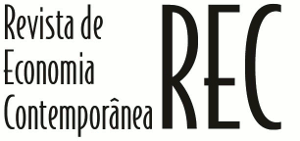Recently some Brazilian economists, like Arida and Bacha, have defended the idea that the capital controls already in existence in the Brazilian economy can produce disequilibrium in exchange rate markets, increase the level of domestic rate of interest and reduce Brazil’s macroeconomic performance. The objective of this article is to make an empirical evaluation of these arguments. For such, we make some econometric tests with the aim to determine the implications of the capital account convertibility over the Brazilian economy. Empirical findings do not seem to support Arida and Bacha thesis. In fact, the low level of capital controls prevailing in the Brazilian economy during the 1990’s can be one of the explanations for the excessive volatility in the exchange rate and for the high level of domestic interest rate. We also make a panel regression for economic growth and capital account convertibility. The results of the regression do not support the existence of a positive relation between capital account convertibility and economic growth, as defended by Arida and Bacha.
financial liberalisation; capital account convertibility; economic growth









